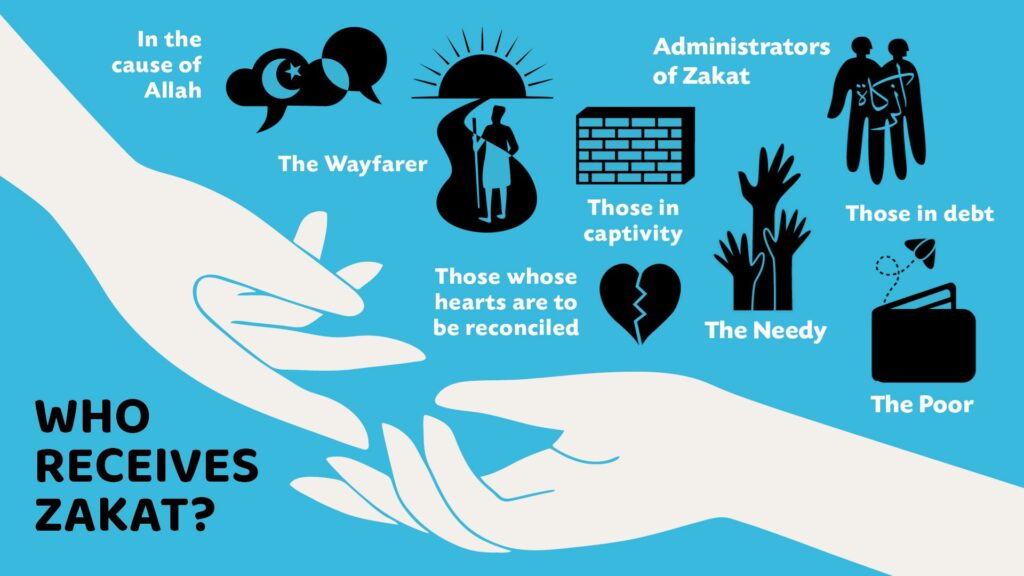Zakat Fitrana 2025
Understanding Zakat and Fitrana in 2025: Obligations, Calculations, and Platforms for Donation
Zakat and Zakat al-Fitr (Fitrana) are essential charitable obligations in Islam that ensure wealth distribution among those in need. With fluctuating gold prices and evolving economic conditions, understanding how much Zakat and Fitrana to pay in 2025 is crucial for every Muslim in Pakistan. These financial acts of worship help purify wealth and create a more just society by supporting those who are less fortunate.
What the Quran Says About Zakat
"And establish prayer and give Zakat, and whatever good you put forward for yourselves – you will find it with Allah. Indeed, Allah sees what you do." (Surah Al-Baqarah 2:110)
Zakat is repeatedly emphasized in the Quran as a means of wealth purification and social justice. It serves as a reminder that wealth is a trust from Allah and should be used to support the community.
What Hadith Says About Zakat
"Islam is built upon five: Testifying that there is no god but Allah and that Muhammad is His Messenger, establishing prayer, giving Zakat, performing Hajj, and fasting Ramadan." (Bukhari & Muslim)
This hadith highlights the fundamental nature of Zakat in Islam, making it one of the core pillars of faith. It is not merely a voluntary act of charity but a religious duty that every eligible Muslim must fulfill.

Zakat on Gold in 2025
The nisab (minimum threshold for Zakat) is 85 grams of gold or 595 grams of silver.
Current Gold Price (March 2025): PKR 21,000 per gram
Zakat Calculation: 85g * PKR 21,000 = PKR 1,785,000 (nisab threshold)
Zakat Due (2.5%): PKR 44,625 if wealth meets or exceeds this threshold for a lunar year
It is important to check gold and silver prices regularly, as they fluctuate. If you meet the nisab threshold, you must calculate Zakat on your total wealth, including cash, business inventory, and investments.
Zakat Amount in 2025
Zakat is calculated at 2.5% of one’s qualifying wealth, which includes:
- Gold and silver
- Savings and cash in hand
- Business inventory
- Investments (excluding personal residence and daily-use items)
- Rental income and stocks
- Loans given to others (if recoverable)
Many Muslims prefer to pay their Zakat during Ramadan, as rewards for good deeds are multiplied in this blessed month. However, it is essential to track your lunar-year cycle and ensure timely payments.
What is Fitrana (Zakat al-Fitr)?
Fitrana, also known as Zakat al-Fitr, is a mandatory charity given before Eid al-Fitr. Unlike Zakat, which is based on wealth, Fitrana is required from every Muslim, including children, who possess surplus food or wealth beyond daily needs.
The purpose of Fitrana is to purify the fasts of Ramadan and ensure that the less fortunate can also celebrate Eid with dignity.
Fitrana Amount in 2025 and Its Calculation
The Fitrana amount is based on staple food items:
Wheat flour (3kg @ PKR 180 per kg): PKR 540
Barley (3kg @ PKR 230 per kg): PKR 690
Dates (3kg @ PKR 1,100 per kg): PKR 3,300
Raisins (3kg @ PKR 1,600 per kg): PKR 4,800
The minimum Fitrana amount for 2025 is PKR 540 per person. However, those who can afford to give more should opt for the higher amounts to support those in need more effectively.
Difference Between Zakat and Fitrana
Zakat:
- Based on wealth
- Due anytime after a lunar year
- 2.5% of eligible wealth
- Given to the poor, needy, debt-ridden, new Muslims, etc.
Fitrana:
- Based on individuals (per person)
- Due before Eid al-Fitr prayer
- Fixed amount per person
- Given primarily to the poor and needy
Who Can Receive Zakat and Fitrana?
Recipients of Zakat and Fitrana must fall under specific categories outlined in the Quran:
- The poor (Al-Fuqara)
- The needy (Al-Masakin)
- Those working to collect and distribute Zakat
- New Muslims or those whose hearts need reconciliation
- Slaves and captives (to help in freeing them)
- Those in debt
- Those striving in the path of Allah
- Travelers in need
It is important to give Zakat and Fitrana to trustworthy organizations or directly to deserving individuals to ensure proper utilization.
Where to Donate Zakat and Fitrana in Pakistan
There are many reputable charitable organizations in Pakistan where you can donate:
Edhi Foundation
Saylani Welfare
Al-Khidmat Foundation
Shaukat Khanum Memorial Trust
Akhuwat Foundation
Additionally, many mosques and local charities collect Zakat and Fitrana for distribution within communities.
Common Misconceptions About Zakat and Fitrana
1. Only the wealthy need to pay Zakat - Zakat is due on savings exceeding the nisab, not just on high-income individuals.
2. Zakat can be given to family members - You can give Zakat to extended family but not to direct dependents (parents, children, spouses).
3. Fitrana can be given after Eid - Fitrana must be paid before the Eid prayer; otherwise, it is just a regular charity.
Final Thoughts
Zakat and Fitrana are not just financial obligations; they are acts of faith that purify wealth and foster social harmony. By fulfilling these duties, Muslims contribute to a more equitable society while earning blessings from Allah.
May Allah accept our Zakat and Fitrana and reward us for our generosity. Ameen!
leave a comment!
5
1
vote
Article Rating
Subscribe
Login
0 Comments
Oldest
Newest
Most Voted
Inline Feedbacks
View all comments
Written by :
Nouman akram
Posted on :
18 march 2025
